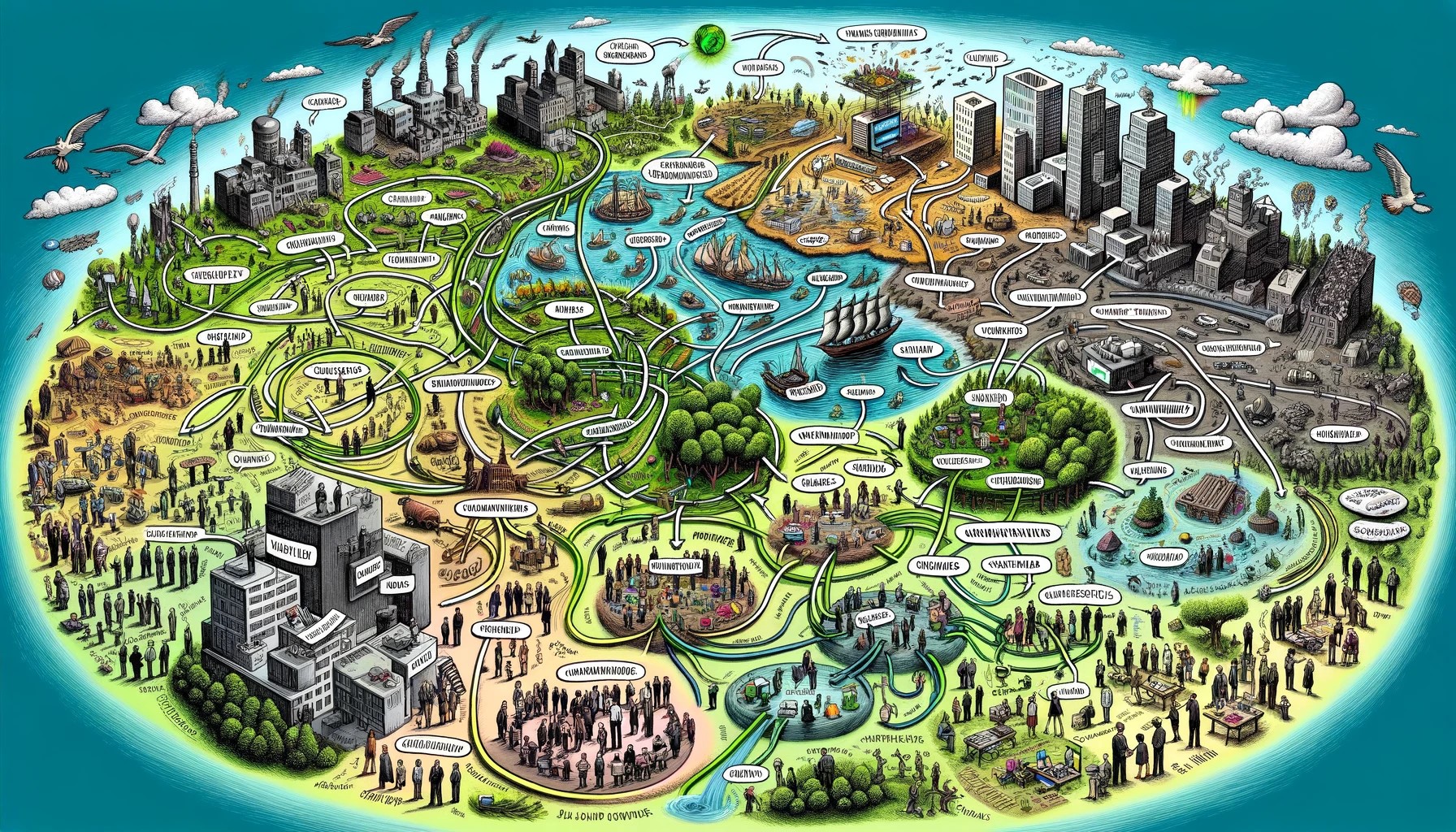(Business) Thinking in a Wicked World
I’ve been in “the world of work” for well over a half-century and have seen a lot of change resulting in successes, failures, trends, and fads. Some examples include:
- The very definition of “quality” morphed in the 1980s.
- Trucking became logistics and when combined with warehousing, they grew into supply-chain.
- “Shareholder value” was invented to urge senior leaders to take a long-term view but that idea was quickly gamed, and some members of the C-suite are paid 200X the average worker.
- Big data was (is) going to change everything and crypto-currency devotees are trying to decentralize the entire banking industry.
- And now generative AI is seen as a replacement for some (many?) white-collar workers, and FOBO (fear of becoming obsolete) is on the minds of workers and “creatives.”
Colleges and universities have well-established curricula for many functional specialties. You can get a degree focused on accounting, finance, marketing, IT, big data and analytics, and more. But there are not enough programs focused on the more important skill – the ability to think comprehensively about the world of business and beyond.
Thee Assumptions and a Conclusion
So, where am I going with this? I have three assumptions that I’d like you to consider. If you agree, then I’d like your opinion about my conclusion and suggestion.
Assumption 1: Business is a wicked system that operates inside a wicked world.
A “wicked system” is characterized by its high level of complexity, uncertainty, and interconnectedness.
The term “wicked” doesn’t imply evil or maliciousness in this context; rather, it signifies the difficulty of finding straightforward solutions to problems and challenges due to the intricate and often unpredictable nature of the situation.
Wicked systems are challenging to address because they often involve multiple stakeholders with diverse perspectives, conflicting goals, and changing dynamics. These systems may lack clear boundaries, have ambiguous problem definitions, and resist traditional linear approaches to problem-solving.
Here are a few characteristics of business as a wicked system.
- Business involves a multitude of interconnected elements, including departments, stakeholders, markets, products, and processes. Changes in one area can have cascading effects throughout the entire system (e.g., use of AI for market analysis).
- Business environments are constantly evolving due to technological advancements, market shifts, regulatory changes, consumer preferences, and evolving generations (e.g., Gen Alpha).
- Business decisions are often made in the face of uncertainty, with incomplete information and ambiguous contexts (e.g., incorporate AI now or later?).
- Decisions made in the business context can have unintended consequences due to the complexity of the system (e.g., cost cutting leading to morale issues).
- Business systems can display emergent behavior, where patterns or outcomes arise that are not directly predictable from the individual components (e.g., impact of social media on mental health).
Given these characteristics, business leaders often find themselves dealing with problems that cannot be solved using function-specific approaches.
Assumption 2: Deep functional skills are necessary, but insufficient to handle the challenges of a wicked system.
Look at the above list of wicked system characteristics. Which functional department (e.g., HR, accounting, marketing, operations, etc.) should address these issues? All, yes. But not individually.
Or maybe you say these need to be addressed by the C-suite. But should all such issues be elevated to the top of the house? Wouldn’t it be better if mid-level managers and emerging leaders came up with solutions, rather than just identification of problems?
Assumption 3: “Common sense” is not so common and often insufficient.
Common sense refers to the basic, practical knowledge and reasoning abilities that people typically possess and use in their daily lives to make decisions, solve problems, and navigate their environment. It’s the collection of shared beliefs, assumptions, and understanding about how the world works that is considered obvious or self-evident by most people within a particular culture, society, or industry.
But the very definition of a wicked system negates some of the shared beliefs, assumptions, and understanding of how the system works.
Conclusion & Suggestion
As a leader you need to enhance your thinking skills because the world of business has become increasingly wicked.
I suggest that you consider an integration of five thinking disciplines as you attempt to understand and resolve the wicked challenges facing you and your organization. I will address each of these in upcoming posts. Stay tuned.
- Systems thinking provides a framework for understanding the complexities and interconnections of the system within which you work.
- Critical thinking ensures that your understanding of your business challenges is grounded in evidence and logic.
- Future thinking prepares you for potential future developments and uncertainties.
- Skepticism guards against misinformation and cognitive biases.
- Design thinking enables the creation of actionable strategies for addressing challenges.
I hope you have a great week. (Oh, and don’t forget to comment.)
Bill
Never miss out!
Get an email update every time I publish new content. Be the first to know!

